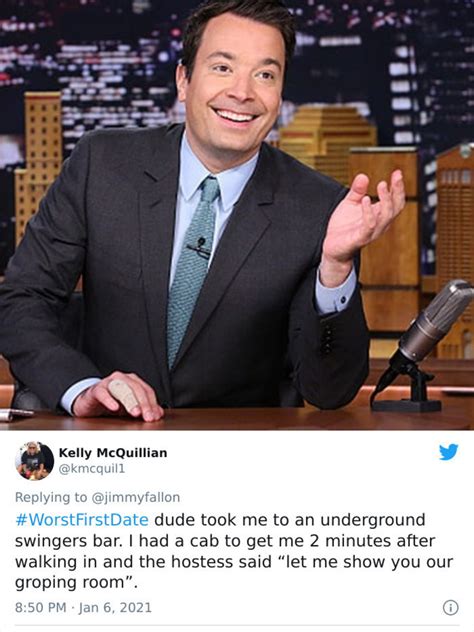
Wedding etiquette is being redefined, and not always for the better, as some couples are taking increasingly audacious steps, from invoicing guests to demanding specific gifts, leaving many questioning the boundaries of acceptable behavior in modern matrimonial celebrations. Instances of couples expecting guests to foot the bill for meals, drinks, and even honeymoons are becoming increasingly common, sparking outrage and debate online.
The trend, highlighted in a recent article compiled from various social media posts and online forums, showcases a range of demands that many find unreasonable and downright greedy. Examples include couples charging guests for attending the wedding, dictating specific monetary gifts, and implementing strict rules regarding attire and appearance, all enforced with a level of entitlement that has ruffled feathers across the internet.
“Weddings are becoming less about celebrating love and more about recouping costs, or even turning a profit,” notes one Reddit user quoted in the article, encapsulating the sentiment of many observers. This shift in focus from a joyous occasion to a financial transaction is leading to strained relationships and a re-evaluation of traditional wedding norms.
One of the more extreme examples cited involves a couple who sent out invoices to guests who attended their wedding, itemizing costs for food and drinks. The invoice demanded payment within a specific timeframe, adding a layer of transactional coldness to what should have been a celebration of love and commitment. Another couple requested that guests contribute a minimum of $400 towards their honeymoon, effectively turning their wedding into a crowdfunding campaign for their personal vacation.
The issue extends beyond financial demands. Some couples are implementing strict dress codes, dictating specific brands or styles of clothing that guests must wear. Others have gone so far as to demand that guests adhere to specific weight and appearance standards, raising concerns about body shaming and the pressure to conform to unrealistic beauty ideals. “It’s my day, and I want everyone to look perfect,” one bride reportedly stated, justifying her stringent appearance requirements.
The reaction to these instances of perceived greed has been overwhelmingly negative. Social media platforms are flooded with comments criticizing the couples’ behavior, with many users accusing them of being entitled and out of touch with the realities of wedding planning and guest expectations. The debate raises fundamental questions about the purpose of weddings, the responsibilities of hosts, and the expectations of guests.
“It’s important to remember that weddings are a celebration, not a business transaction,” advises etiquette expert Emily Post. “While it’s perfectly acceptable to register for gifts, demanding specific items or amounts is simply inappropriate. The focus should always be on creating a joyful and inclusive event for everyone involved.”
The increasing prevalence of these incidents suggests a growing disconnect between traditional wedding etiquette and modern expectations. As couples grapple with the rising costs of weddings and the pressure to create Instagram-worthy events, some are resorting to tactics that many consider to be over the line. The resulting backlash highlights the importance of clear communication, mutual respect, and a focus on the true meaning of marriage.
Specific Examples of “Greedy” Behavior
The Yahoo article provides numerous examples of what many consider to be excessively demanding or greedy behavior by newlyweds. These examples serve as illustrations of the broader trend and highlight the specific actions that are generating controversy.
- Invoicing Guests: As previously mentioned, some couples have taken the unprecedented step of invoicing guests for attending their wedding. These invoices typically itemize the costs of food, drinks, and other expenses, effectively charging guests for the privilege of attending the celebration. This practice is widely condemned as being transactional and disrespectful, turning a joyous occasion into a financial obligation.
- Honeymoon Funds with Minimum Contributions: Instead of registering for traditional wedding gifts, some couples are requesting that guests contribute to their honeymoon fund. While honeymoon funds are not inherently problematic, some couples are setting minimum contribution amounts, effectively dictating how much guests should spend on their gift. This practice is seen as being presumptuous and insensitive, particularly for guests who may be on a tight budget.
- Strict Dress Codes and Appearance Requirements: Some couples are implementing strict dress codes that go beyond simply specifying formal or informal attire. These dress codes may include specific brands, styles, or colors of clothing that guests must wear. In extreme cases, couples have even demanded that guests adhere to specific weight and appearance standards, raising concerns about body shaming and discrimination.
- Demanding Specific Monetary Gifts: Rather than registering for specific items, some couples are simply requesting cash gifts. While cash gifts are a common and acceptable practice, some couples are specifying the exact amount of money they expect guests to give. This practice is considered to be impolite and presumptuous, as it places undue financial pressure on guests.
- Charging for Food and Drinks at the Reception: Some couples are charging guests for food and drinks at the wedding reception, either through a cash bar or by selling tickets for meals. This practice is seen as being particularly egregious, as it implies that guests are not valued or appreciated enough to be provided with complimentary refreshments.
- Controlling Guest Behavior: Some couples attempt to micromanage their guests’ behavior at the wedding, dictating everything from when they can dance to what they can say in speeches. This controlling behavior is seen as being disrespectful and stifling, preventing guests from fully enjoying the celebration.
- Threatening to Uninvite Guests: In some cases, couples have threatened to uninvite guests who do not comply with their demands or expectations. This behavior is seen as being particularly hurtful and alienating, damaging relationships and creating unnecessary stress.
The Underlying Factors Contributing to the Trend
Several factors may be contributing to the trend of increasingly demanding behavior by newlyweds. These factors include:
- Rising Wedding Costs: The average cost of a wedding has steadily increased in recent years, placing significant financial pressure on couples and their families. In an attempt to recoup some of these costs, some couples may be tempted to resort to tactics that are considered to be inappropriate or greedy.
- Social Media Pressure: The rise of social media platforms like Instagram and Pinterest has created a culture of wedding envy, where couples feel pressure to create elaborate and visually stunning events. This pressure can lead to couples overspending on their weddings and then attempting to recoup those costs through unconventional means.
- Entitlement and Lack of Awareness: Some couples may simply be unaware of traditional wedding etiquette or may feel entitled to certain treatment from their guests. This lack of awareness or entitlement can lead to them making demands that are considered to be unreasonable or disrespectful.
- Changing Social Norms: As social norms evolve, traditional wedding etiquette may become less relevant or less widely understood. This can lead to confusion and disagreement about what is considered to be acceptable behavior at weddings.
- Desire for Control: Some couples may simply have a strong desire to control every aspect of their wedding, including their guests’ behavior and contributions. This desire for control can lead to them making demands that are seen as being overbearing or micromanaging.
The Impact on Guest-Couple Relationships
The demanding behavior of some couples can have a significant impact on their relationships with their guests. Guests who feel pressured to spend excessive amounts of money or conform to unreasonable demands may feel resentful and alienated. This can lead to strained relationships and even the breakdown of friendships.
In some cases, guests may choose not to attend the wedding altogether, rather than comply with the couple’s demands. This can be particularly hurtful for the couple, who may feel rejected and unsupported.
Even if guests do attend the wedding, they may not fully enjoy the celebration if they feel that they are being treated as a source of income or a means to an end. This can create a negative atmosphere and undermine the overall purpose of the wedding, which is to celebrate love and commitment.
The Importance of Open Communication and Realistic Expectations
To avoid these negative consequences, it is essential for couples to communicate openly with their guests and to have realistic expectations about what they can reasonably ask of them. Couples should be mindful of their guests’ financial situations and avoid placing undue pressure on them to spend excessive amounts of money. They should also be respectful of their guests’ personal preferences and avoid making demands that are overly controlling or restrictive.
It is also important for guests to communicate their concerns to the couple in a respectful and constructive manner. If a guest feels that a particular demand is unreasonable, they should express their concerns to the couple privately, rather than complaining about it publicly. This can help to avoid unnecessary conflict and maintain a positive relationship.
Ultimately, the key to a successful wedding is to focus on creating a joyful and inclusive event for everyone involved. This requires clear communication, mutual respect, and a willingness to compromise. By focusing on these values, couples can ensure that their wedding is a celebration of love and commitment, rather than a source of stress and conflict.
Etiquette Experts’ Perspectives
Etiquette experts consistently emphasize the importance of graciousness and consideration when planning a wedding. They caution against placing undue financial burden on guests and stress that the focus should always be on creating a welcoming and enjoyable experience for everyone.
“A wedding is a gift, not a transaction,” says Anna Post, an etiquette expert and the great-great-granddaughter of Emily Post. “The couple is hosting an event to celebrate their love, and guests are there to share in that joy. It’s important to remember that.”
Experts advise couples to be mindful of their guests’ budgets and to avoid making demands that could be considered insensitive or presumptuous. They also recommend that couples register for a variety of gifts at different price points, to give guests options that fit their financial situations.
“It’s perfectly acceptable to have a honeymoon fund, but it’s not okay to set a minimum contribution amount,” says Lizzie Post, another etiquette expert and Emily Post’s great-granddaughter. “That sends the message that you’re more interested in the money than in the guest’s presence.”
Etiquette experts also advise couples to be flexible and accommodating when it comes to dress codes and other requirements. They stress that the goal should be to make guests feel comfortable and welcome, rather than to impose strict rules that could make them feel self-conscious or excluded.
“The most important thing is to be gracious and appreciative,” says Emily Post. “Remember that your guests are taking time out of their lives to celebrate with you, and that’s a gift in itself.”
Legal Considerations
While most of the issues surrounding wedding etiquette are matters of social convention rather than law, there are some legal considerations that couples and guests should be aware of.
For example, if a couple requires guests to sign a contract or waiver before attending the wedding, that contract may be legally binding. This could have implications for liability in the event of an accident or injury.
Similarly, if a couple makes false or misleading statements about the wedding or its expenses, they could be liable for fraud. This could occur if they misrepresent the cost of the event or if they solicit donations for a specific purpose and then use the money for something else.
In general, it is always advisable to consult with an attorney if you have any legal concerns about a wedding or any other event.
The Future of Wedding Etiquette
As social norms continue to evolve, wedding etiquette is likely to continue to change as well. It is possible that some of the practices that are currently considered to be unconventional or even greedy may become more widely accepted in the future.
However, it is also likely that certain fundamental principles of wedding etiquette will remain constant. These principles include graciousness, consideration, and respect for guests. As long as couples adhere to these principles, they can ensure that their weddings are joyful and memorable occasions for everyone involved.
The debate surrounding demanding newlyweds serves as a reminder that weddings are complex social events with a rich history and a constantly evolving set of expectations. By engaging in open and honest dialogue about these expectations, couples and guests can work together to create celebrations that are both meaningful and enjoyable.
Frequently Asked Questions (FAQ)
-
Is it ever okay to invoice wedding guests? No, invoicing wedding guests is generally considered highly inappropriate and a breach of wedding etiquette. Weddings are typically hosted events, and guests should not be expected to directly pay for their attendance. While some couples may appreciate contributions to a honeymoon fund, directly invoicing guests is widely viewed as transactional and disrespectful. As Emily Post suggests, “Weddings are a celebration, not a business transaction.”
-
What is an acceptable amount to contribute to a honeymoon fund? There is no fixed acceptable amount. The contribution to a honeymoon fund should be based on the guest’s individual financial situation and their relationship with the couple. It is crucial for couples not to dictate a minimum amount or make guests feel pressured to contribute beyond their means. Etiquette dictates that it is the thought that counts, and any contribution should be gratefully received.
-
How strict is too strict when it comes to wedding dress codes? The line between a helpful dress code and an overly strict one is subjective but generally depends on the level of specificity and the potential financial burden on guests. Specifying “cocktail attire” or “formal wear” is generally acceptable. However, requiring specific brands, colors that may be difficult to find, or demanding adherence to certain weight or appearance standards crosses into unreasonable territory. The goal should be to guide guests in choosing appropriate attire without imposing undue financial or emotional strain.
-
What should I do if I receive a wedding invitation with demands I can’t meet? If you receive an invitation with demands you find unreasonable or cannot meet, it is best to decline the invitation politely and promptly. You can express your well wishes to the couple without providing detailed explanations for your absence, unless you feel comfortable doing so. Maintaining respectful communication is key to preserving the relationship.
-
Are destination weddings inherently more demanding on guests? Destination weddings often require more significant financial and time commitments from guests. Therefore, it is crucial for couples planning destination weddings to be especially mindful of their guests’ circumstances. Providing ample advance notice, offering options for accommodation, and avoiding demands for extravagant gifts can help mitigate the burden on guests. Open communication about expectations is essential to ensure guests feel comfortable and appreciated.









